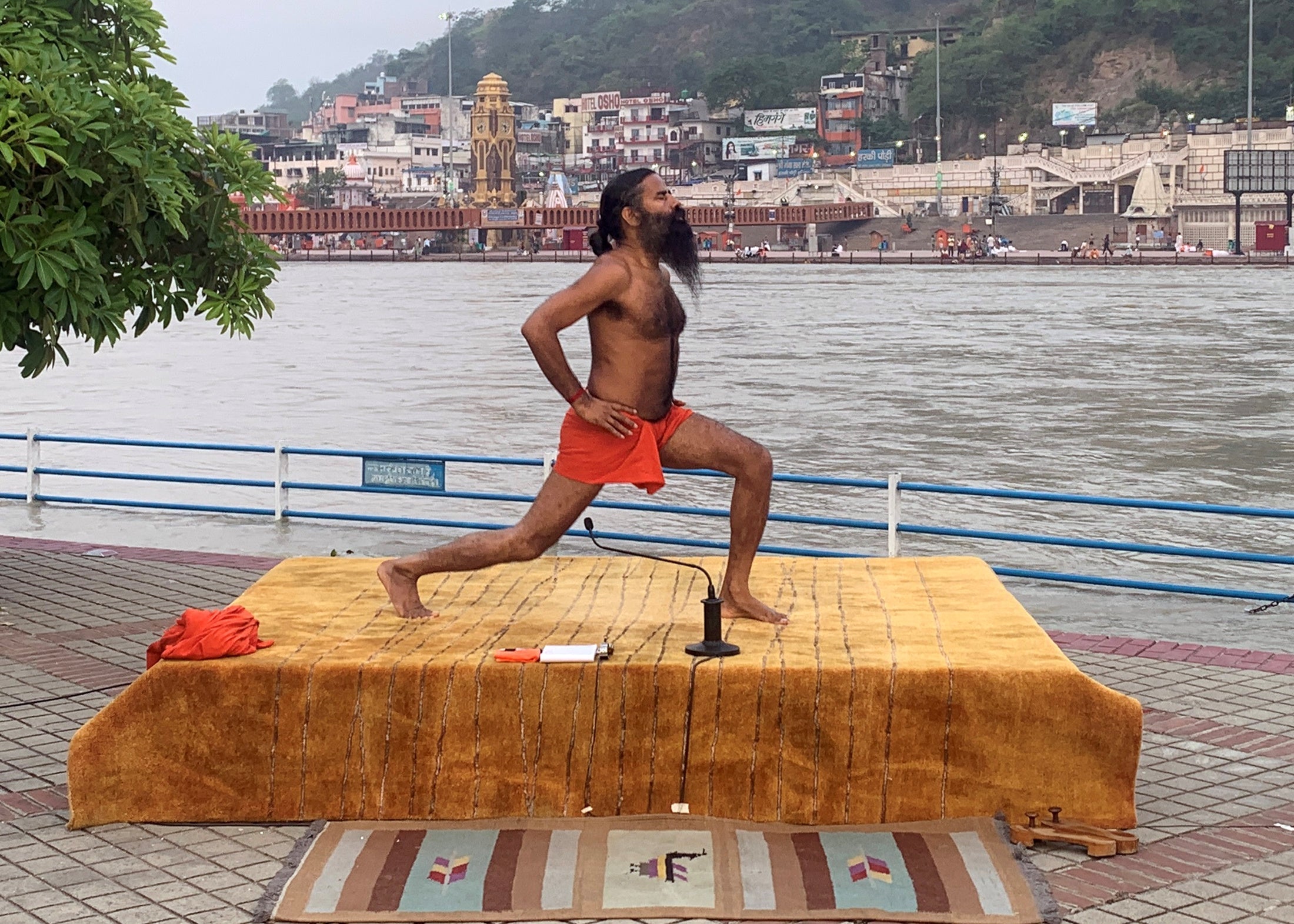Indian billionaire guru told to stop promoting herbal 'cure' for coronavirus
When asked on TV what was in his new product, Baba Ramdev paused before suggesting 'cinnamon'. He gestured to the bowls of powders in front of him, adding: 'You can see all the ingredients in front of me here'

Your support helps us to tell the story
From reproductive rights to climate change to Big Tech, The Independent is on the ground when the story is developing. Whether it's investigating the financials of Elon Musk's pro-Trump PAC or producing our latest documentary, 'The A Word', which shines a light on the American women fighting for reproductive rights, we know how important it is to parse out the facts from the messaging.
At such a critical moment in US history, we need reporters on the ground. Your donation allows us to keep sending journalists to speak to both sides of the story.
The Independent is trusted by Americans across the entire political spectrum. And unlike many other quality news outlets, we choose not to lock Americans out of our reporting and analysis with paywalls. We believe quality journalism should be available to everyone, paid for by those who can afford it.
Your support makes all the difference.One of India’s best-known yoga gurus has been told to stop advertising a new herbal product that he claims can cure Covid-19.
Baba Ramdev, founder and head of the major traditional medicine manufacturer Patanjali, held a grand event on Tuesday unveiling a tablet called “Coronil” which, he claimed, had cured 100 per cent of coronavirus patients within seven days.
“Coronil” was the first cure for coronavirus based on the practice of Ayurvedic medicine, Ramdev claimed, a school of Indian traditional medicine that traces its routes back thousands of years and has its own government ministry - Ayush, the ministry of Ayurveda, Yoga & Naturopathy, Unani, Siddha and Homoeopathy.
That ministry has now stepped in, however, ordering Ramdev to stop promoting his product and saying it will be blocked from going to market until the government has been provided with information by Patanjali to support its claims.
The Ayush ministry admits that anyone is free to invent herbal medicines in India, and that there are “no specific regulatory provisions for [the] conduct of clinical trials of Ayurveda drugs”.
But officials have had to crack down on practices since the start of the Covid-19 pandemic, issuing an order under national disease emergency laws stating that all claims relating to coronavirus must be assessed and approved by the ministry first.
At the start of June, the ministry issued another circular to all state governments warning that they must take action “against instances of misleading information, fake claims and misbranding”. It said criminal charges would be brought “in blatant cases of violation”.
During his launch event in the Himalayan foothills city of Haridwar, Uttarakhand state, Ramdev claimed that Coronil and two other products, together marketed as a “Coronavirus package” for Rs 545 (£5.75), had been the subject of a controlled clinical trial in Delhi and other cities. Without providing full details or data, he claimed that of the trial participants, 69 per cent went from testing positive for coronavirus to negative in three days, and 100 per cent did so in seven days.
The ministry said it had received neither the details of any trials or even the ingredients of Ramdev’s products before he launched them.
As part of his publicity drive, Ramdev appeared on several prime time Indian TV news channels on Tuesday night. When asked on Times Now to name the ingredients in Coronil, Ramdev paused for some time before stating that they include “cinnamon” and then gesturing to an array of bowls in front of him, saying: “You can see all the ingredients in front of me here.”
Ramdev also appeared on India Today with anchor Rajdeep Sardesai. Challenged on how he could “make such claims without testing the drug”, the guru replied: “We have taken the necessary permission to make the drug, conduct a clinical trial. We have already answered all the questions Ayush put forth, they will get it soon.”
Though he has amassed a formidable business empire, Ramdev describes his “basic work” as yoga, and his daily practices are broadcast live on TV and amass large live audiences. He has 10 million followers on Facebook alone, and was described in a 2018 New York Times Magazine Profile as simultaneously “the billionaire yogi behind [Narendra] Modi’s rise” and “India’s answer to Donald Trump”.
Health is a devolved affair in India, but still the central ministry’s intervention raised the question of how Patanjali received permission to launch the new products, seemingly without government approval, during a pandemic.
On Wednesday, the Uttarakhand state authorities issued a statement saying Ramdev’s licence application had not actually mentioned Covid-19.
“The license was issued only for immunity booster kits and fever medicine,” said Dr YS Rawat, head of the state’s medicinal licensing authority. A notice would be issued to the company “now that it [the claims about coronavirus] has come to the attention of the Ayush department”, he said. “If their reply is not satisfactory then their current licences will be canceled,” he added.
Acharya Balkrishna, the billionaire chairman of Patanjali, wrote on Twitter that the licensing issue was simply a matter of a “communication gap”. He shared a letter he had received from the Ayush ministry, acknowledging receipt of documents related to “the clinical trial” of the new drug, which Patanjali says was conducted by its own Patanjali Research Institute and the private NIMS University in Jaipur.
Neither Patanjali nor NIMS responded to a request for comment from The Independent.
Join our commenting forum
Join thought-provoking conversations, follow other Independent readers and see their replies
Comments